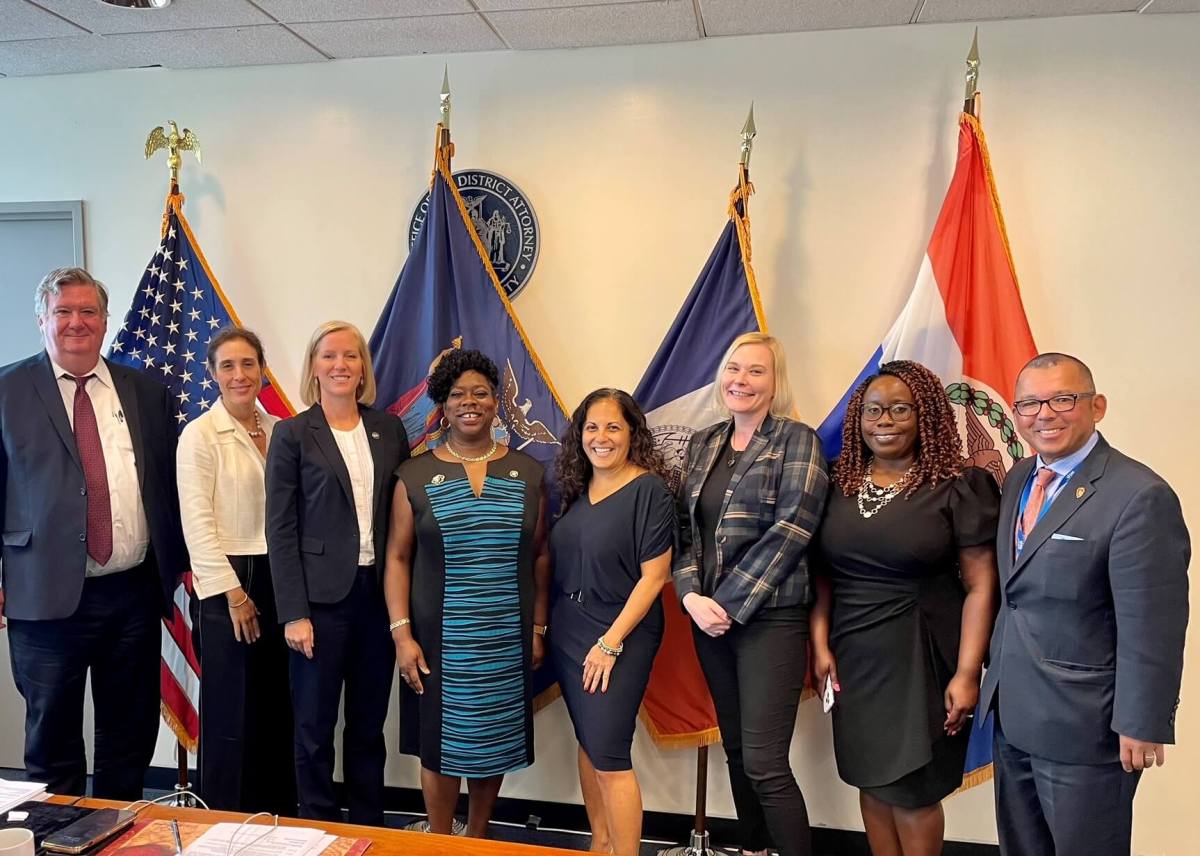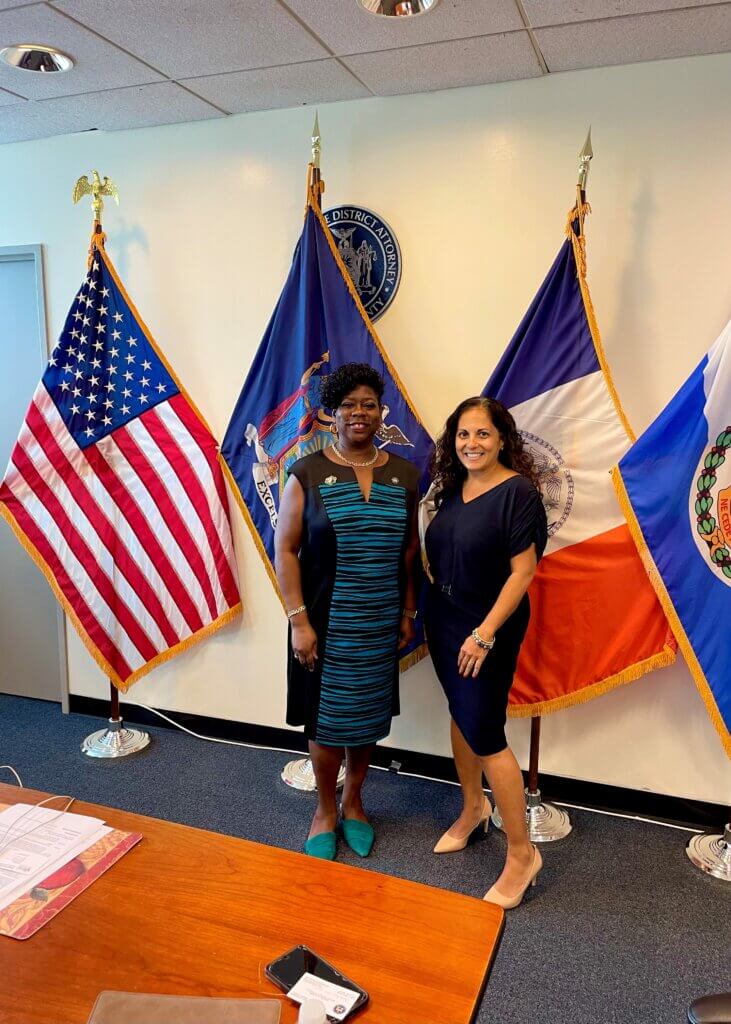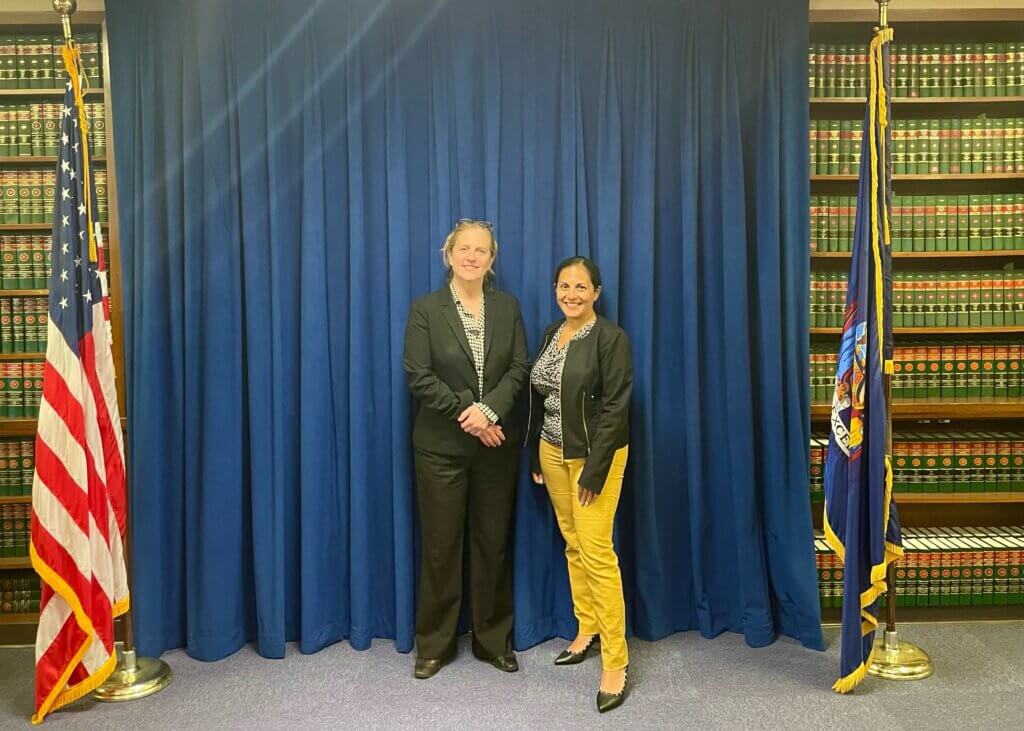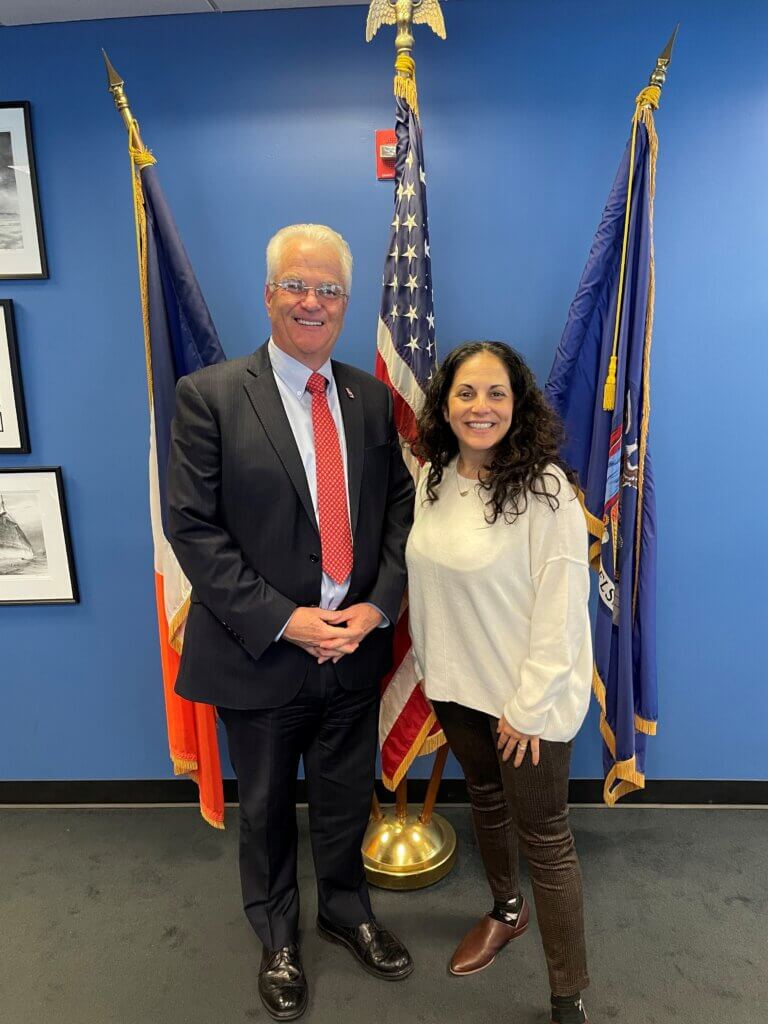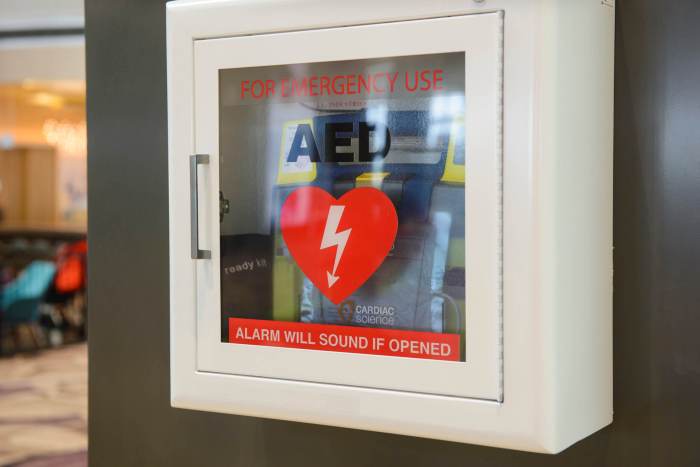As she marks more than two years as president and CEO of EAC Network, Neela Mukherjee Lockel looks forward to serving people and communities, wherever the need may be.
Lockel, who had previously served as CEO of the American Red Cross on Long Island, wants more people to connect the many programs back to EAC Network.
“Whenever I have an opportunity to talk about the scope of the work the agency does, I’m eager to be able to do that,” Lockel says.
A not-for-profit social service agency with a $31 million annual budget, EAC Network works to empower, assist, and care for 65,000 people in need through 114 programs across Long Island, New York City and Rockland County.
Its mission is to respond to human needs with programs and services that protect children, promote healthy families and communities, help seniors, and empower individuals to take control of their lives.
The agency operates under five pillars of service: Children & Youth, Family & Community, Behavioral Health & Criminal Justice, Senior & Nutrition Services, and Vocational Services.
Headquartered in Garden City, EAC operates at 27 locations throughout Long Island, New York City and Rockland County, and strives to strengthen communities, working with one child, family, individual, senior, school, organization, and community at a time.
Since its founding in 1969, EAC has grown in both the scope of its mission and its reach into communities, aiming to alway treat clients as individuals, with the care, dignity, and compassion they so deserve.
Coming home to EAC Network
When Lockel moved to Long Island in 2006, her first job was at EAC, where she served for two years as a director of programs.
“So when the opportunity arose, even though it was going to be a new position, I still felt like, ‘I know where I’m going; I know these people.’ It felt like a familiar place I was coming to,” she says.
Despite her comfort level, starting in April 2021 — in the middle of the Covid-19 outbreak — turned out to be a bigger transition than she’d anticipated.
“It was hard to do that deep dive into everything when everybody was working remote,” Lockel says, noting that the organization shifted back to in-person work and services gradually and has been back agency-wide for about two months.
Coming back to EAC, Lockel found an agency operating on solid footing. Still, she saw opportunities for change and growth, namely in putting diversity, equity and inclusion at the top of the agenda and ensuring that DEI is a factor in all of the work that they do.
“We’re working in very, very diverse communities in really, really sensitive subject areas,” Lockel says. “Oftentimes when we are engaged in people’s lives it’s because there’s some kind of turmoil, there’s some kind of intersection with another governmental system. It’s a difficult time, so we want to always make sure we are sensitive to our communities.”
To that end, EAC now has a diverse board of directors and has created a committee to specifically discuss these issues.
With Covid, people were even more siloed and feeling separated, and Lockel saw a mandate to bring them together.
“We’re called a network because there are so many pieces of our work,” Lockel says. “It’s important for our staff to be able to help our clients navigate, even where EAC can be helpful to them in other places.”
Getting the word out about EAC Network
Though many people are familiar with EAC’s work with children in Suffolk County, where the organization runs the Child Advocacy Center and works with young victims of human trafficking, and its Meals on Wheels services for seniors in Nassau County, Lockel wants to create greater awareness about three other areas of its work: vocational services, family and community-based services and the criminal justice/ behavior health division.
“That’s really something that we’ve been trying to focus on: to engage in a conversation about public safety through our criminal justice and behavioral health work,” Lockel says, noting that through its re-entry, mental health and substance abuse services, EAC is one of the main providers of alternatives to incarceration, working to engage people and divert them into the programs and services that they need.
“I am very proud of the work that we do because we know that our success rates have been pretty significant. People who are coming through EAC’s programs have a greater likelihood of not getting arrested again,” Lockel says, noting that its recidivism rates are better than statewide or countrywide figures.
“If you come to one of our programs, you’re getting treatment and case management and you are motivated to change the course of your life,” Lockel says.
“EAC is here to provide you with the resources to navigate and get all the things that you need to actually get to where you’re heading to, which is hopefully a better place, a more stable lifestyle, a greater sense of community. These are all things that we know help people stay out of the system.”
One way EAC achieves these goals is by providing vocational services and getting people back to work, setting them on a path to a more productive and fulfilling life.
The Long Island Dispute Resolution Centers (LIDRC), which many people don’t realize is part of EAC, provides much-needed mediation services at affordable rates.
“In the courts we are seeing that they are relying much more on mediators to help manage the caseload,” Lockel says.
EAC Network responding to the need
Through the years, EAC has built itself up to meet people’s unmet needs, provide individuals with support through services, and help them navigate through the various systems.
In recent years, the agency added driver’s safety classes where teens can learn about the risks of distracted driving and a program for new parents where EAC distributes car seats and teaches people how to install them properly.
“We’re providing a lot of community-based and community-oriented services that are really about strengthening our communities, helping individuals to be self-sufficient and helping to build safe and strong communities,” Lockel says.
Plans are afoot to expand EAC’s response to the pervasive drug epidemic.
Often operating under the radar, the agency will continue to work with partners in law enforcement, the Department of Social Services, and in the community, to battle human trafficking.
“As we grow and work with individuals in communities and see needs evolve and arise, we’ll be responding,” Lockel says.




